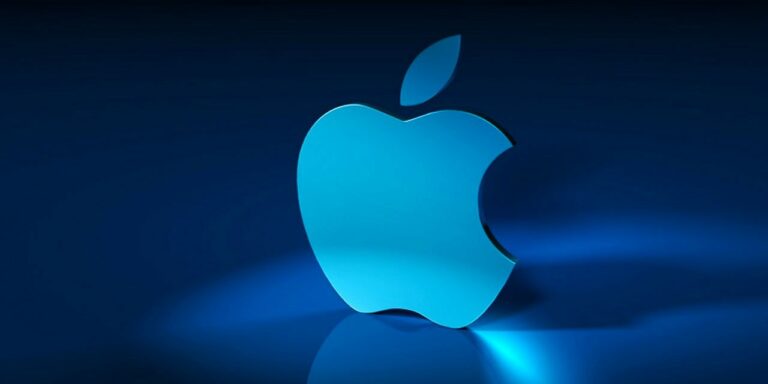Apple has reached an unprecedented feat, making history by becoming the first publicly traded company to conclude a trading day with a remarkable $3 trillion market value. This remarkable achievement indicates the significant impact of its cutting-edge products and extraordinary financial success on society.
As disclosed by CBS, Apple’s shares experienced a positive trajectory on Friday, concluding with a 2.3% rise at $193.97. This upward momentum led to Apple’s market value reaching an impressive $3.04 trillion. It’s worth mentioning that Apple, along with other technology leaders such as Microsoft and chipmaker Nvidia, contributed to the S&P 500’s robust 16% gain in the first half of this year.
Founded 47 years ago by the iconic figure of Silicon Valley, Steve Jobs, the company briefly achieved a market value surpassing $3 trillion on consecutive days in January 2022. However, it couldn’t sustain this milestone by the time the market closed, as reported.
In contrast, Apple’s stock experienced a prolonged downward trend, resulting in a brief period where its market value dropped below $2 trillion earlier this year. The deceleration in growth and investor concerns over rising interest rates had a widespread impact on the entire tech sector, including Apple’s performance.
It wasn’t until earlier this month that Apple once again approached the $3 trillion mark. This milestone coincided with the introduction of a potentially groundbreaking product, the Vision Pro, a premium-priced headset that immerses users in artificial environments through virtual reality technology.
According to CBS, while the attainment of a $3 trillion market value may hold symbolic significance, its sheer magnitude remains awe-inspiring.
This market value is greater than the total market capitalization of the next five largest publicly traded companies combined.
Read also: France Fine Apple Over One Million Euros Over Apps
If the $3 trillion were evenly distributed among the population of the United States, each person would receive approximately $9,000. This showcases the vast amount of wealth encapsulated within a $3 trillion market value.
With a market value of $2.5 trillion, Microsoft establishes itself as the second-most valuable public company. Not far behind, Saudi Aramco, the prominent oil giant, carries a market value of $2.08 trillion. Furthermore, Alphabet, the parent company encompassing Google, Amazon, and Nvidia, boasts market values surpassing $1 trillion.
Within a period of less than two years, Apple surged to a remarkable $3 trillion market value. This significant milestone followed the company’s first achievement of crossing the $2 trillion mark in August 2021, which occurred approximately two years after Apple first reached a market value of $1 trillion.
Apple’s cascading trillions can be attributed to the sprawling technology empire it has meticulously crafted since the iconic return of Steve Jobs in 1997. At that time, the company was grappling with financial turmoil, prompting a pivotal decision to seek aid from Microsoft, a former rival. This unexpected collaboration played a significant role in reshaping Apple’s trajectory and setting the stage for its extraordinary rise.
Such is the magnitude of Apple’s financial success that it can effortlessly afford to allocate a staggering $105 billion each year for investor dividends and stock repurchases. Remarkably, even after these substantial commitments, the company retains a significant cash balance of approximately $56 billion at the end of its most recent fiscal quarter.
Since its grand unveiling by Steve Jobs in 2007, the iPhone has retained its status as the crowning achievement within Apple’s dominion. Even to this day, the device, showcased with Jobs’ signature showmanship, remains the driving force behind the company’s success. In fact, last year alone, the iPhone contributed to over half of Apple’s impressive sales, which totaled nearly $400 billion.
Apart from the iPhone, Apple generates the remainder of its revenue through various other products and services. These include the Macintosh computer, iPad, Apple Watch, AirPods, and a diverse services division encompassing music and video streaming, warranty programs, fees collected from the iPhone app store, and advertising commissions received from Google as the default search engine on the iPhone. These multiple revenue streams contribute significantly to Apple’s overall financial success.
While Steve Jobs was instrumental in incubating most of Apple’s innovations, it is under the leadership of its current CEO, Tim Cook, that the company has experienced significant wealth creation. Cook assumed the position shortly before Jobs’ passing in October 2011, inheriting an Apple with a market value of $350 billion.










